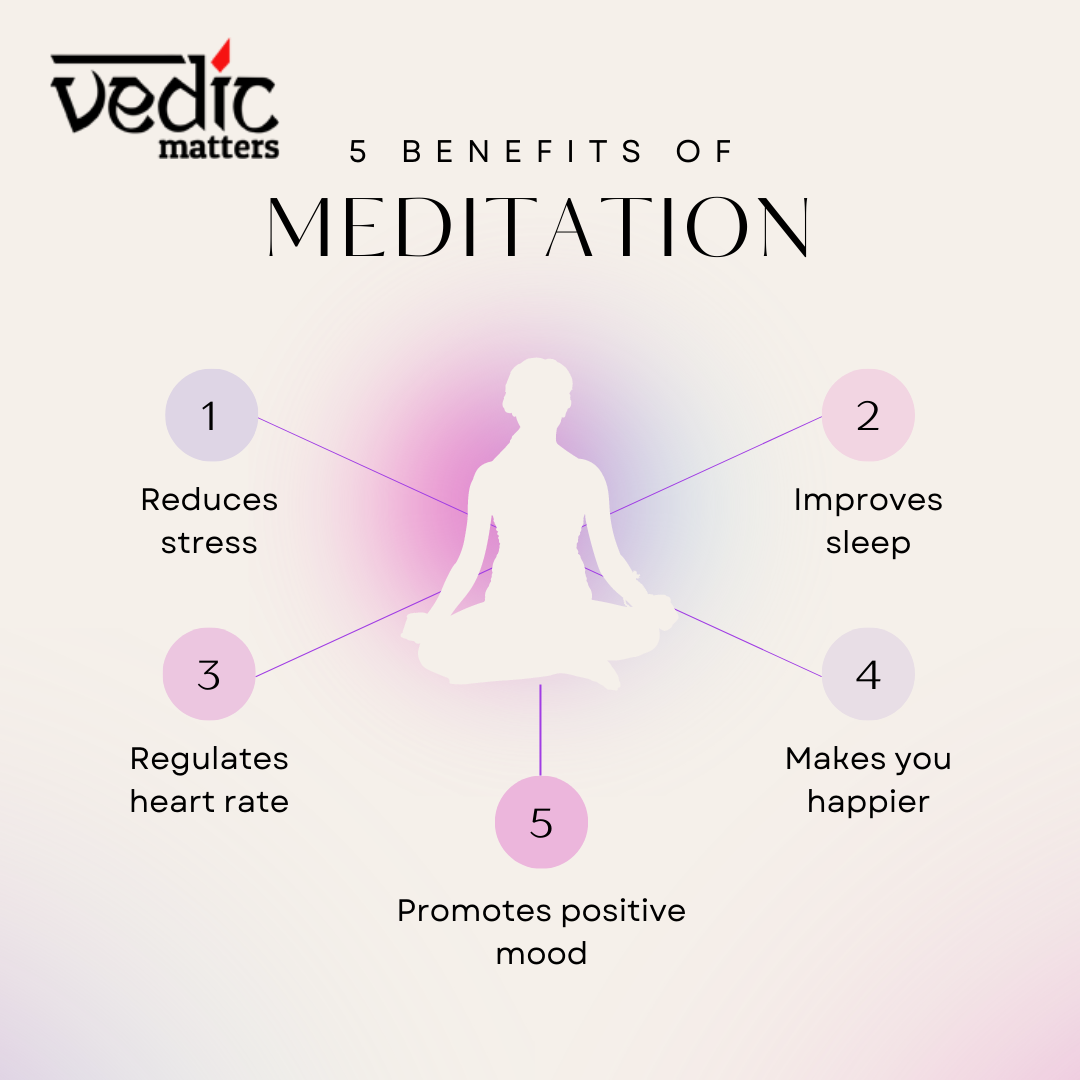Pranayama

While there are many different types of meditation, including mindfulness meditation, transcendental meditation, and loving-kindness meditation, Vedic meditation is a specific form of meditation that has its roots in ancient India. Here are some of the key differences between Vedic meditation and other forms of meditation:
One of the key features of Vedic meditation is the use of mantras. A mantra is a word or phrase that is repeated silently in the mind during meditation. In Vedic meditation, the mantra is chosen specifically for each individual based on their unique characteristics, and it is kept secret and not shared with others. The repetition of the mantra is used to help quiet the mind and promote relaxation.
Vedic meditation is often described as a very simple and effortless practice. Unlike some other forms of meditation that require a lot of concentration or focus, Vedic meditation is designed to be easy and natural. The mantra is used as a tool to help the mind settle down into a state of deep relaxation.
In Vedic meditation, there is a strong emphasis on effortlessness. The idea is to let the mind settle down into a state of restful alertness without trying to control or manipulate the experience. The mantra is simply repeated silently in the mind, without any effort or striving.
In Vedic meditation, each individual is given personalized instruction and guidance on how to practice the technique. The teacher provides a specific mantra that is chosen based on the individual's unique characteristics, and they also provide guidance on how to use the mantra and how to navigate the experience of meditation.
In today's fast-paced world, where we are constantly bombarded with stressors, meditation provides a way to calm the mind and reduce stress. Vedic meditation is a specific type of meditation that has its roots in ancient India and has been practiced for thousands of years. Here are some of the benefits of practicing Vedic meditation
One of the main benefits of Vedic meditation is that it can help reduce stress and anxiety. When we meditate, we activate the relaxation response in our bodies, which helps to lower our heart rate and blood pressure, and reduce the levels of stress hormones in our bodies. With regular practice, this can lead to a reduction in feelings of anxiety and an overall sense of calm and relaxation.
Studies have shown that Vedic meditation can improve brain function in several ways. For example, it can increase activity in the prefrontal cortex, which is associated with higher-level thinking and decision-making. It can also increase the thickness of the prefrontal cortex, which is associated with emotional regulation and attention control.
Another benefit of Vedic meditation is that it can help increase focus and concentration. When we meditate, we train our minds to focus on one thing, whether it's our breath or a mantra. This can carry over into other areas of our lives, helping us to stay focused and productive throughout the day.
Sleep is essential for our overall health and well-being, but many of us struggle to get enough restful sleep. Vedic meditation can help improve the quality of our sleep by reducing stress and anxiety, calming the mind, and promoting relaxation.
Research has shown that Vedic meditation can boost the immune system by increasing the activity of natural killer cells, which are responsible for fighting off viruses and cancer cells. Regular practice of Vedic meditation has also been shown to increase levels of antibodies, which help to protect the body against infections.

Get weekly updates on the newest articles, quotes and newsletters right in your mailbox. Subscribe now
